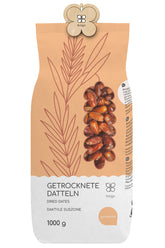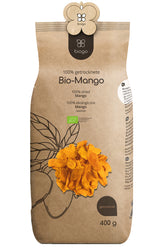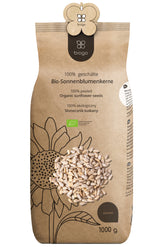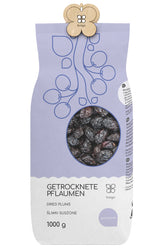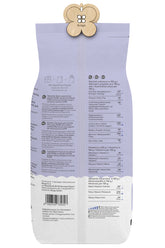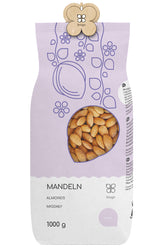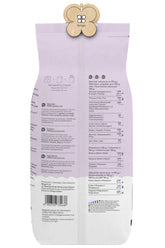In a time when more and more people are adopting a plant-based diet, plant-based milk alternatives are also gaining immense popularity. Whether oat milk, almond milk, or soy milk—the selection of lactose-free and vegan milk substitutes is enormous today. But which plant-based milk is right for you? In this article, we provide a comprehensive overview of the different types, their advantages and disadvantages, as well as helpful tips for choosing.
The Most Popular Types of Plant-Based Milk
Oat milk
Oat milk is one of the most commonly consumed plant-based milk alternatives. It is made from oat grains and has a creamy, slightly sweet taste. Oat milk is rich in fiber, vitamins, and minerals such as calcium, iron, and vitamin B12. Additionally, it is free from lactose, gluten, and cholesterol, making it a healthy choice for vegans, vegetarians, and people with lactose intolerance.
Almond milk
Almond milk is another popular plant-based milk alternative. It is made from peeled almonds and has a nutty, slightly sweet taste. Almond milk is rich in vitamin E, magnesium, and calcium and is excellent for cooking and baking. However, since it contains no protein, it is less nutrient-rich than other plant-based milks.
Soy milk
Soy milk is one of the oldest and most well-known plant-based milk alternatives. It is made from soybeans and has a slightly nutty flavor. Soy milk is a good source of protein, calcium, and vitamins. However, it is not suitable for people with soy intolerance.
Rice milk
Rice milk is a light and low-calorie plant-based milk alternative. It is made from rice grains and has a mild, slightly sweet taste. Rice milk is free from lactose, gluten, and nuts, making it a good choice for people with allergies or intolerances. However, it contains fewer nutrients compared to other plant-based milks.
Coconut milk
Coconut milk is obtained from the flesh of coconuts and has a creamy, slightly exotic taste. It is rich in healthy fats, potassium, and vitamin C. Coconut milk is excellent for cooking and baking due to its high heat resistance. However, because of its high fat content, it is more suitable for occasional consumption.
Benefits of Plant-Based Milk
The trend toward plant-based milk alternatives has many good reasons:
Lactose-free and vegan
Plant-based milks are perfect for people with lactose intolerance or vegan lifestyles, as they're completely free of animal products.
Healthier ingredients
Compared to cow's milk, many plant-based milks contain less fat and cholesterol, but more fiber, vitamins, and minerals.
Environmentally friendly
The production of plant-based milk is significantly less harmful to the environment than cow's milk production. The ecological footprint is much smaller.
Versatile uses
Plant-based milks are excellent for cooking, baking, and smoothies. They work as substitutes for cow's milk in most recipes.
Tips for choosing the right plant-based milk
With the wide variety of plant-based milk options, choosing isn't always easy. Here are some tips on what to look for:
Check nutritional values
Compare the nutritional information of different products. Look for high content of proteins, calcium, vitamin B12, and other important nutrients.
Test the taste
Try different varieties to find your personal favorite taste. Some prefer the nutty flavor of almond milk, others the slightly sweet oat taste.
Watch for additives
Many plant-based milks contain additives like thickeners, flavors, or sugar. Choose products that are as natural as possible without unnecessary additives.
Prefer regional products
When possible, opt for regionally produced plant-based milks. This supports the local economy and reduces transportation distances.
With this overview, you're now well-equipped to find the right plant-based milk for your taste and needs. Whether it's oat milk, almond milk, or another variety – simply try different options until you find your favorite!

